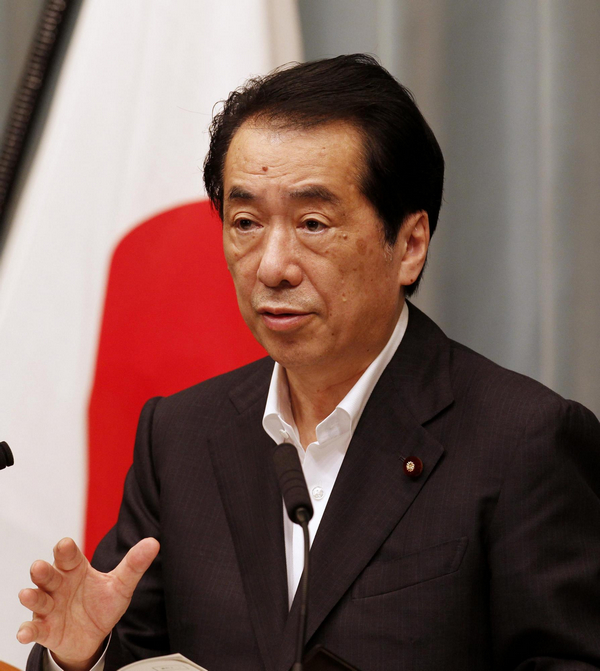Japan PM calls for careful cutback on nuke energy
Updated: 2011-07-30 07:58
(Agencies)
|
|||||||||||
|
 |
| Japan's Prime Minister Naoto Kan speaks during his news conference in Tokyo July 29, 2011. Kan, under pressure to resign soon, said on Friday he wants to fulfil his responsibility over reconstruction efforts after March's huge earthquake and tsunami, as well as bringing the crisis-hit Fukushima nuclear power plant under control. [Photo/Agencies] |
TOKYO _ Japan's Prime Minister Naoto Kan on Friday called for a long-term and careful effort to scale back the nation's reliance on nuclear power over the next four decades and make more use of solar energy and other renewable power sources.
Responding to concerns raised by Japan's March 11 tsunami, Kan called for investment in renewables, a re-examination of the national policy promoting the private development of nuclear power and a reworking of the control regional power companies have over their markets.
His broad-brush announcement calls for a "planned and gradual" reduction of nuclear dependence by 2050 and is an attempt to unify the government's stance on nuclear policy.
"We aim for a society that does not depend on nuclear power," Kan said. "It is very important for us to have a meaningful debate on this issue."
Kan has already said he intends to step down as soon as the country's recovery is on track, and his government is deeply divided over what approach it should take toward nuclear power.
Earlier this month, he said he would like to see his country completely phase out nuclear power in light of the crisis at the tsunami-damaged Fukushima Dai-ichi plant. But he was opposed in that stance by members of his own Cabinet and slammed by the opposition as irresponsible.
He later clarified that his remarks reflected only his "personal opinion."
The plan announced Friday has the basic support of his Cabinet.
Resource-poor Japan has long pursued an aggressive nuclear power policy. Before the disaster it relied on nuclear for about a third of its electricity and was aiming to increase that share to about one-half by 2030.
Amid a public outcry over nuclear safety, Kan has led a rethinking of that policy.
Public opinion toward nuclear energy has been harsh since the earthquake and tsunami touched off fires, explosions and meltdowns at the Fukushima facility. Some 80,000 residents near the plant were evacuated, and a 12-mile (20-kilometer) ring around it remains off-limits.
Powerful segments of government and industry, however, argue that nuclear is necessary for Japan's economy, that it is relatively safe and clean despite the recent dissater and that alternative energy sources are too expensive to make up the difference.
Tokyo Electric Power Co., the utility that runs the plant, says although the worst of the crisis has subsided, it will likely take years to conduct the cleanup and repairs. The Fukushima Dai-ichi reactors will not be operational again.
Currently, 35 of Japan's 54 reactors are idle, causing electricity shortages amid sweltering heat. The government has ordered safety checks on all reactors after the disaster _ the worst nuclear crisis since Chernobyl.
With the loss of the Fukushima plant, which used to supply power to Tokyo areas, companies, factories and shopping malls are making government-ordered cutbacks in the amount of energy they use.